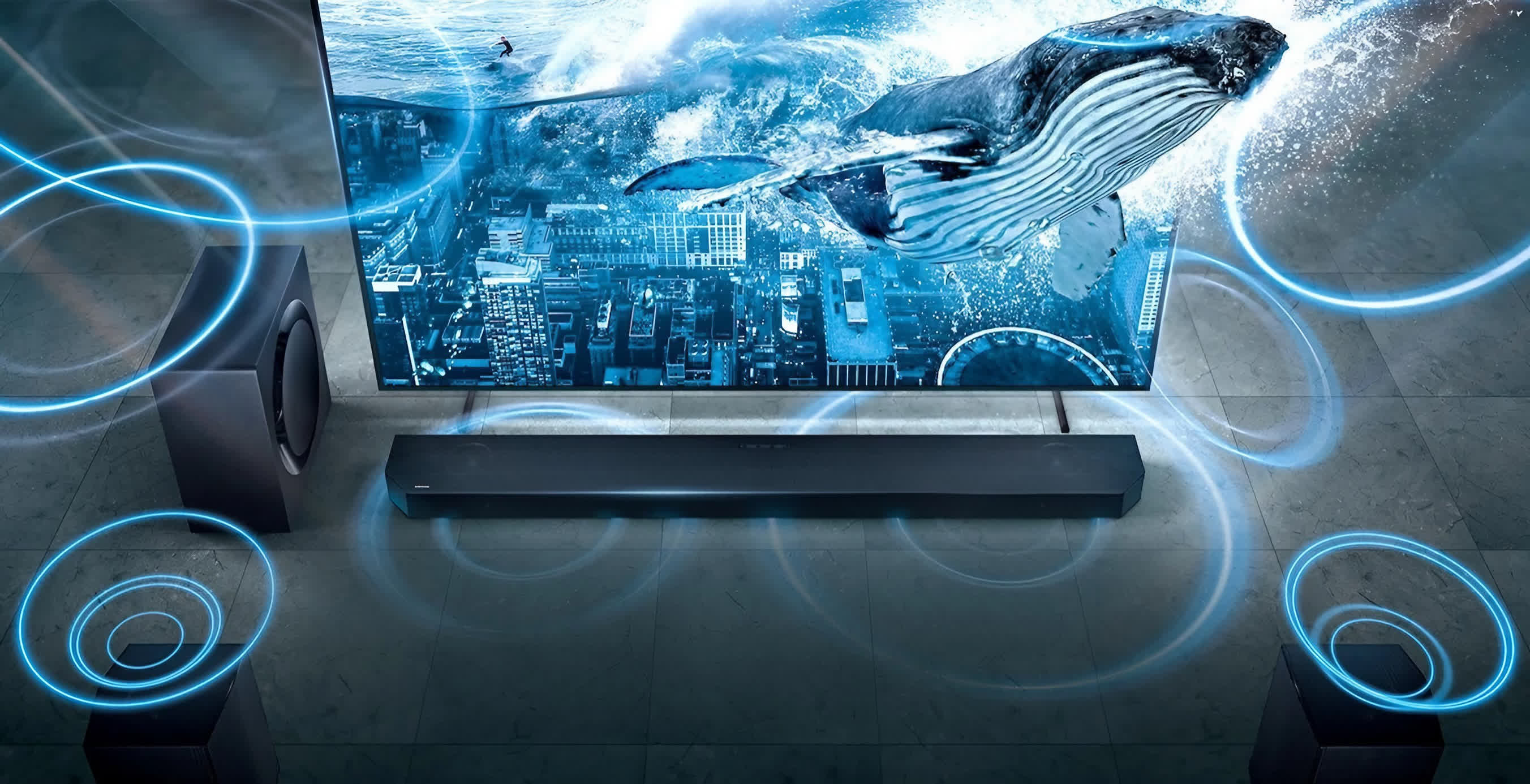Forward-looking: Samsung and Google are collaborating to challenge Dolby, a major player in immersive audio. The duo has introduced Eclipsa Audio, an innovative open-source spatial audio format aimed at delivering 3D sound to YouTube and Samsung’s new TVs and soundbars later this year.
For a long time, Dolby Atmos has dominated the 3D audio scene, acclaimed for its enveloping surround sound that makes it feel as if sounds are originating from all directions. It has become a widely recognized name, with almost every leading TV manufacturer today paying the “Dolby tax” to incorporate Atmos into their high-end televisions and audio systems.
However, Samsung and Google are aiming to challenge the established order with Eclipsa Audio, a cost-free alternative. Samsung asserts that Eclipsa Audio works much like Atmos by modifying audio data – including location, intensity, and spatial reflections – to generate 3D sound. The major distinction is its open standard, allowing hardware producers to avoid licensing fees.
Moreover, the two tech giants are working with the Telecommunications Technology Association to develop a certification program to ensure quality consistency across devices utilizing the technology.

Samsung and Google initially hinted at their spatial audio partnership in 2023 under the title Immersive Audio Model and Formats (IAMF). Back then, Samsung explained the project as an attempt to offer “a comprehensive open-source framework for 3D audio, from creation to encapsulation and playback.”
So why are these companies investing so much effort? For Samsung, the main motivation likely centers on bypassing licensing costs. Given the increasingly narrow profit margins in the TV industry, reducing expenses is essential. Google’s reasons are more ambiguous, but it appears the company aims to equip YouTube creators with a platform for experimenting with immersive 3D audio experiences.
“We believe that Eclipsa Audio has the potential to revolutionize sound experiences,” stated Jim Bankoski, VP of Engineering at Google Chrome. “We are eager to see how creators leverage it to craft fresh and pioneering audio experiences.”
The significant question remains whether Samsung and Google’s fresh initiative can genuinely compete with Dolby’s seasoned technology. Dolby has had ample time to perfect Atmos, which has become the industry benchmark recognized by casual viewers.
Whatever the results, we’ll get an initial view of Eclipsa’s capabilities at CES 2025 next week, where Samsung is set to present live demonstrations.